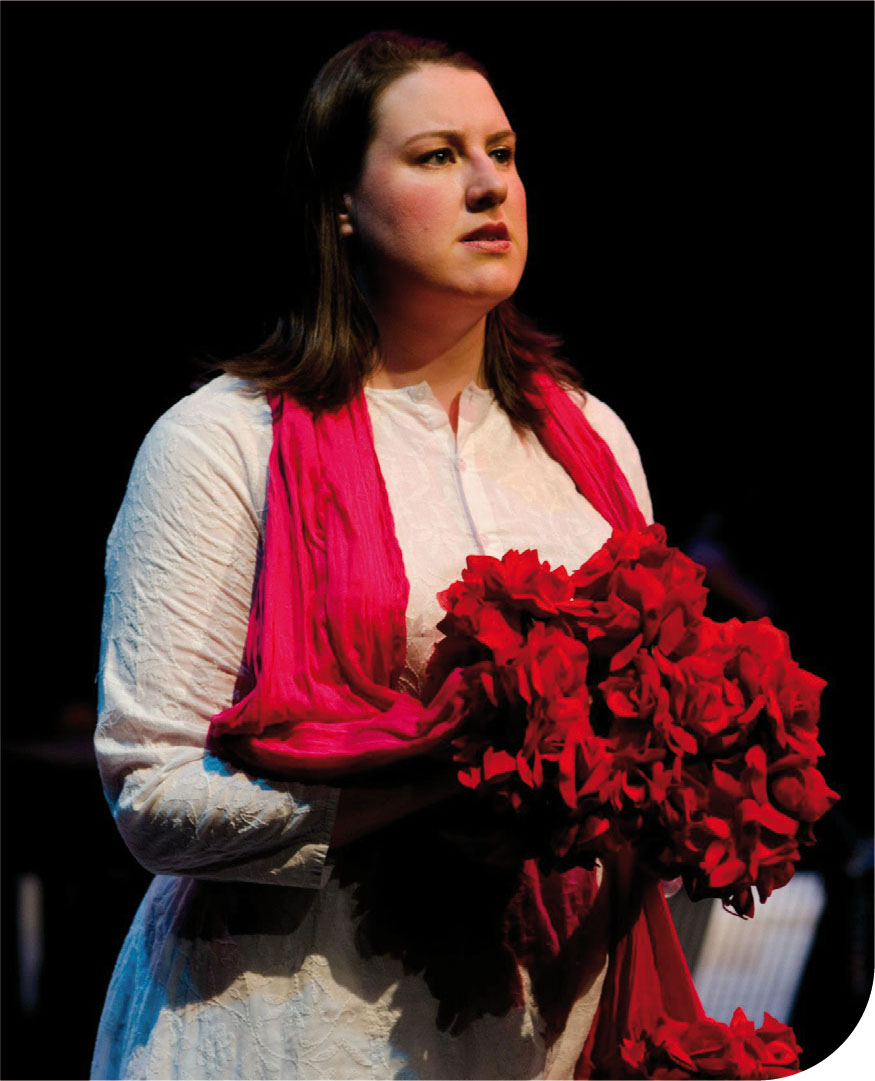
You'd be hard-pressed these days to find a performer whose work commitments never extend into music education. Whether it's in a school, college or community setting, part of an expansive outreach programme or as a private teacher, most performers have at some point used their skills to engage others in the practice of music making. In what follows, you'll hear from soprano Felicity Hayward and drummer Neil Cooper on their experiences of working as a performer and teacher.
Three thoughts from Felicity
I've been combining work as a solo and choral singer with a teaching practice both privately and in schools for about 10 years. I've learned that it's important to:
- Always communicate. Juggling a weekly or termly schedule to accommodate performing and teaching simultaneously can often be very challenging. But if people like the work you do, they will often be flexible to accommodate you if it doesn't unfairly compromise the learning experience. I'm lucky to have felt very valued by employers and students over the years because of my experience as a performer. If something comes up that is important for you, have the conversation. Hiding from schedule conflicts just causes ill-will. Self-employment vs employment can be a tricky tightrope to walk too, but I have found that being self-employed – while not always the best choice for employment rights and job security – works best for me most often.
- Keep learning. There are so many resources, events and courses that can help you to deepen your understanding, reflect on your practice and become a better teacher in your field. As a choral singing specialist, I started out with choral directing courses run by abcd (The Association of British Choral Directors) and Sing for Pleasure. The latter has been particularly useful for group singing lessons because of the specialist repertoire for younger students. When it comes to vocal technique, the books of Jenevora Williams are never far from my reach. You can often access training courses if you're employed (or self-employed) with a music hub, or through membership organisations like the ISM and the Musicians' Union.
Many courses and conferences are surprisingly inexpensive, and sometimes even free. If you want to go deeper into the process, there are plenty of ways to become a qualified teacher or undertake postgraduate qualifications. One of the more interesting of these is Trinity Laban's fairly new Postgraduate Diploma course, ‘The Teaching Musician’, which is specifically designed as a distance learning course for performers who want to expand their teaching skills while continuing to work. - Stay creative and determined. Teaching singing can be a real process of discovery, and it often involves a lot of experimentation. You can come at the same technical issue from hundreds of different angles before you find the one that locks into place for that particular student. My students vary in age from under 10 to over 50. One of the things I love most about being both a performer and a teacher is that those ‘wow’ moments can happen in both fields, and they're incredibly satisfying. I'd definitely put a big breakthrough in someone's lesson up there with the best moments of my performing career; I think the determination that helps me keep going as a performer is an extremely helpful attribute for a teacher to have. Plus, being a satisfied performer makes me a happier and more engaged teacher. It's a win-win.

Felicity Hayward performing in an opera © George Lord
Three thoughts from Neil
I'm a professional drummer and have played in alternative rock band Therapy? since 2002. Alongside touring and recording, I've taught privately and in schools (one-to-one drumming lessons) and I completed a Certificate of Teaching through ABRSM. Here are my thoughts on combining teaching and performing as a career:
-
Share your enthusiasm. I love playing in bands – it feels like something I have to do, and it's such a good thing to introduce youngsters to. There's so much to teaching beyond just helping a student learn to play the instrument. I notice the self-confidence, the enjoyment and the self-worth that you're building. So many factors go into it, and I don't think performers who are not teachers realise just how much you get out of it.
-
Be organised. It can be challenging to keep track of everything when you're teaching, and these days neither young students nor their parents want piles of paper which will inevitably get lost. It was this scenario that led me to set up a website called Music Tutor's Hero (musictutorshero.co.uk), which is an online organiser for music teachers to store all their teaching essentials while allowing pupils (and their parents) easy access to their lesson notes, media, invoicing, and lesson calendars. It started out as a way to make my own life easier, but now it's available to anyone who wants to try it. Something else that has helped me as a teacher is planning lessons on a larger scale – scheduling topics for a term or longer and digging more deeply into one subject area.
-
Empower your students. To become a professional performer, you have to be driven but also have the confidence to fail. As performers, what we can bring to teaching is the reality of that life and career path – things like timekeeping, being a good colleague and an awareness of the luck involved in making a career from playing. I'm also a huge believer in the importance of asking for students' opinions. Their opinions are as important as mine, and it's important for them to develop that critical thinking. It gives them responsibility, confidence and the bravery to jump in the deep end.








